Emily Huang is more than a PhD student in the University of Macauʼs (UM) Faculty of Law (FLL). She is also a screenwriter, author, and university lecturer, with a good command of Mandarin, Portuguese, Japanese, and English. What are her secrets to success in so many fields?
Expanding Horizons through Bilingual Training
Born in Hangzhou, Huang obtained her bachelorʼs degree from the Guanghua Law School of Zhejiang University in 2013. After graduation, she joined the Chinese-Portuguese bilingual training programme organised by the Macao Tong Chai Charity Association with the aim of becoming a bilingual legal professional in Chinese and Portuguese. ʻI believed gaining an international perspective would be beneficial to my future career, so I gave the programme a try,’ says Huang.
Without any prior knowledge of Portuguese, she began studying the language in the School of Arts and Humanities at the University of Lisbon during the first year of the programme. She spent the second year in the FLL of UM, before returning to Portugal in 2016 to study Portuguese in more depth in the Faculty of Law at the Catholic University of Portugal. In the same year, she complete her masterʼs thesis, and obtained a masterʼs degree in comparative civil law (Chinese language) from UM.
Without any prior knowledge of Portuguese, she began studying the language in the School of Arts and Humanities at the University of Lisbon during the first year of the programme. She spent the second year in the FLL of UM, before returning to Portugal in 2016 to study Portuguese in more depth in the Faculty of Law at the Catholic University of Portugal. In the same year, she complete her masterʼs thesis, and obtained a masterʼs degree in comparative civil law (Chinese language) from UM.
Huang says she is greatly inspired by Susana Chou, who is not only the president of the Macao Tong Chai Charity Association and the former president of the Legislative Assembly of Macau, but also the sponsor of the bilingual training programme. ‘Her notion of “Heart of China, Eyes on the world” has a major influence on my worldview,’ says Huang.
During her stay in Portugal, Huang worked as a Chinese-Portuguese interpreter for a local chamber of commerce — an example of her effort to improve her language skills by taking advantage of the local environment. She also spoke frequently to her host family in Portuguese and joined a language exchange activity organised by the Confucius Institute in Lisbon, where she became language partner of a local elderly person. ʻWith the pandemic still going on, it is much more difficult to study abroad today,’ she says. ‘But if you want to improve your Portuguese skills, you can always turn to the songs, films and TV shows at your fingertips to create a conductive learning environment.’
A Passion for Creative Writing
Despite having an undergraduate degree in law, Huang did not pursue a career in the legal field after graduation. Instead, she delved into the world of literature. Influenced by some family members active in the art sector in the mainland, Huang has been interested in writing since her childhood. Alongside her masterʼs studies, she published several Chinese books, including The Ordinary Man with a Decent Face and Choose a Posture to Make Yourself Irreplaceable (both published in Chinese). The former book was inspired by her heart-warming experiences in Macao and Portugal. Fluent in Japanese, she also translated Miu Kakiyaʼs book I Will Sort out Your Life from Japanese into Chinese.
Huang has also created screenplays for Chinese animated films, such as Travel with the Wind and Gulu Mermaid 2, and the experiences have shed new light on her understanding of creative writing. ʻBefore doing screenwriting work, I mostly wrote to satisfy myself,’ says Huang. ‘After joining these screenwriting projects, which involved real actions and scenes, I started to believe that creative work is a service to the public that meets industrial standards and at the same time expresses the creator’s personal ideas. It can be a blend of artistic pursuit and commercial entertainment.ʼ
In recent years, Huang has shared her experience with others and she became a screenwriting teacher at the Communication University of Zhejiang’s School of Literature in 2019.
Returning to UM for Doctoral Studies
As a tireless learner, Huang returned to UM to study for a PhD in 2021. ʻAs I have studied in Macao, I know that UM has produced many research results and its international ranking has been rising,’ says Huang. ʻI chose UM for my PhD studies because the FLL has an international faculty team, a multilingual research environment, and a professional and open communication platform.’ She adds that UM offers her different opportunities to sharpen her ideas, broaden her horizons, and realise her dreams in legal studies as well as creative writing.
Huang admits that without work experience in the legal field, it is a challenge to pursue a PhD in law. ʻI did have doubts about my ability to adapt to the demanding nature of the doctoral programme,ʼ she says. Thanks to the guidance of her supervisor Prof Tong Io Cheng, dean of FLL, she has learned to approach her research studies in the philosophy of law using social science perspectives with which she is familiar as a starting point. ‘Prof Tongʼs research interests are in line with mine. His experience in learning Portuguese from scratch to mastery, as well as his passion for interdisciplinary research, make him an excellent role model for me as a researcher,’ says Huang.
With Prof Tongʼs support, Huang is now working as an editor of Macau Law Review, an academic journal published by FLL, and she has learned a lot from the journal’s executive editor-in-chief Prof Zhao Guoqiang. ʻThis task is both challenging and rewarding, as it gives me many opportunities to edit and review academic articles,’ says Huang. Under the guidance of the professor, Huang has also published articles in Macao Daily News and Macao Higher Education Magazine, which laid a strong foundation for her future academic career.
Moving Between Law and Literature
Law and literature may seem like two separate fields, but Huang sees many similarities between the two. ʻTo be successful in legal research, you need a great deal of academic knowledge and good logical thinking skills, just as it does in the world of literature,’ she says.
She believes that it takes a lot of time and effort, as well as a little bit of luck and opportunity, to achieve a certain level of excellence in academic research, teaching, and creative writing. ‘It isn’t easy to find a balance between all three areas, but I will not stay in my comfort zone. I will continue to focus on my legal studies, and apply what I have learned to creative writing and teaching.ʼ
Source: My UM ISSUE 112
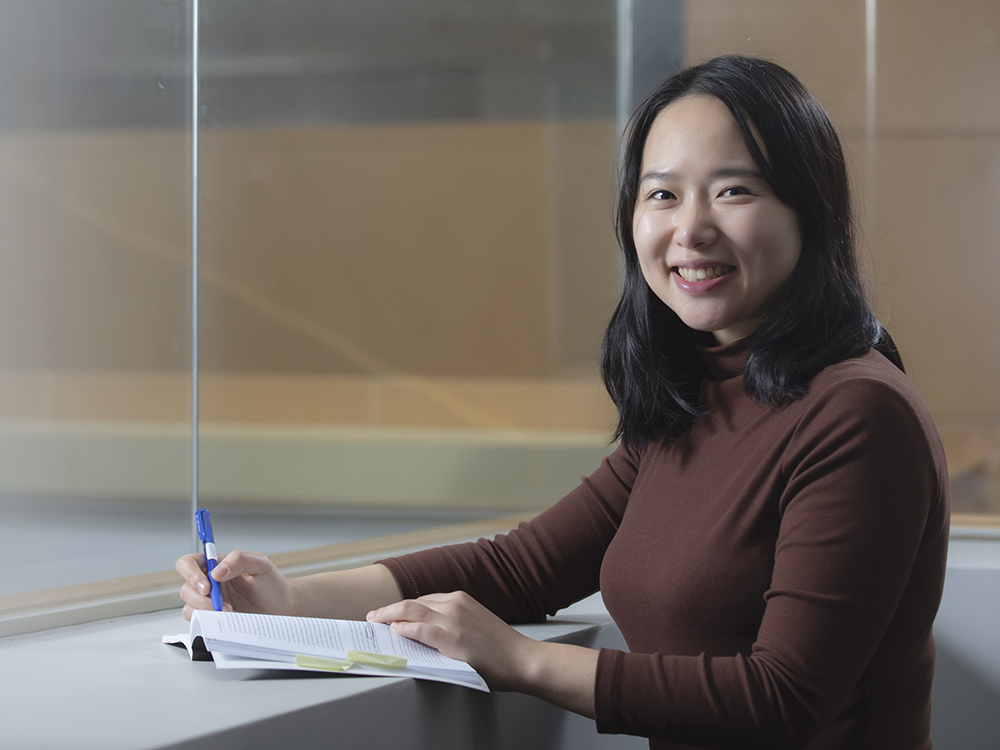
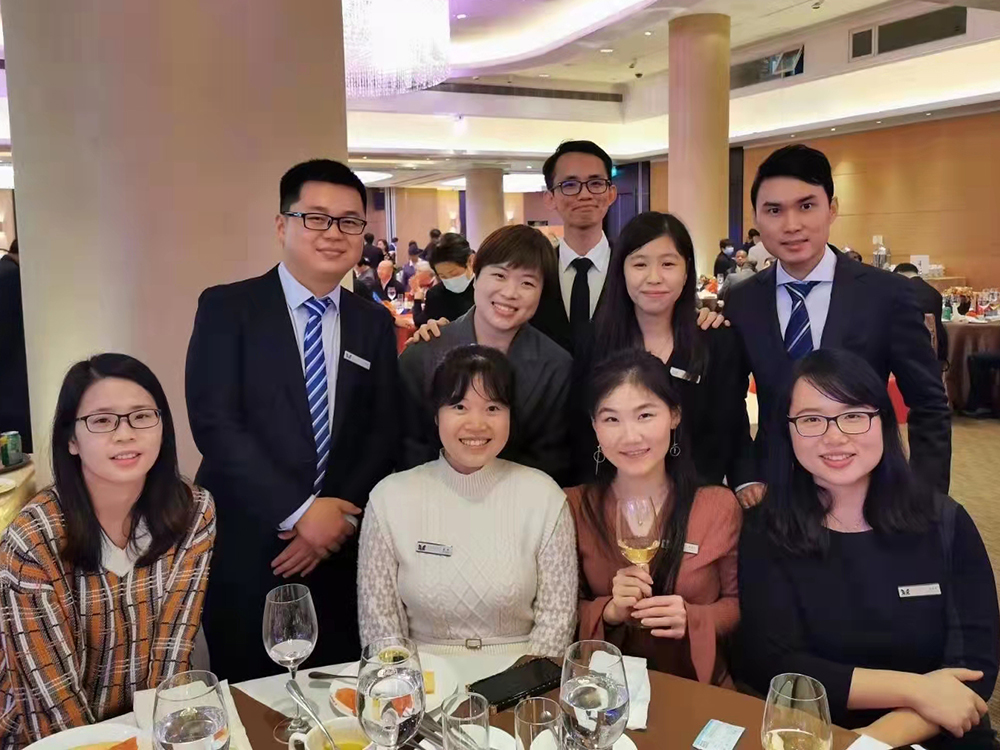
Emily Huang (1st from right, front row) at a gala dinner to celebrate the 10th anniversary of Macao Tong Chai Charity Association’s Chinese-Portuguese bilingual training programme
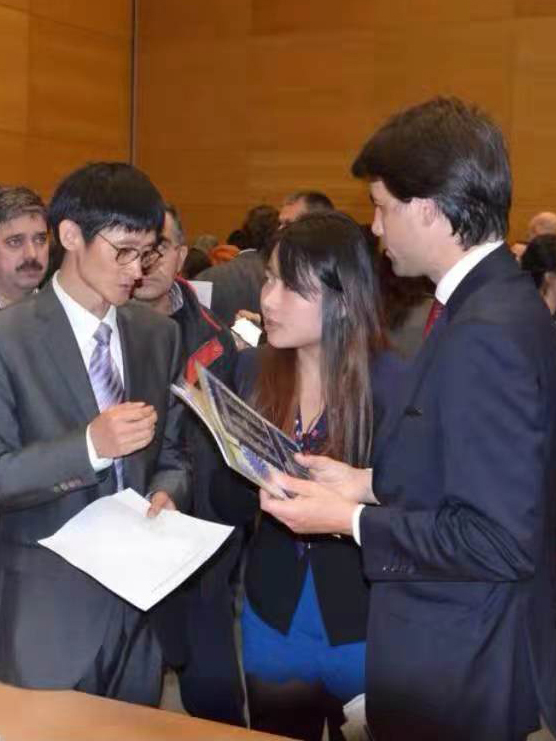
Emily Huang (middle) works as a Chinese-Portuguese interpreter for a chamber of commerce i
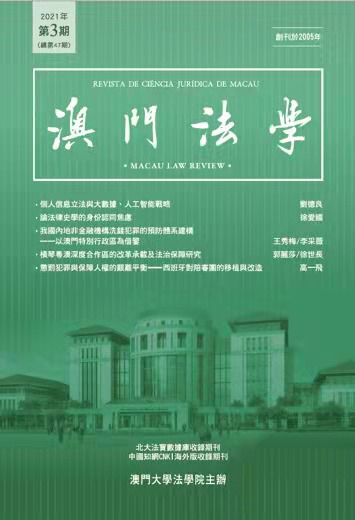
The cover of Macau Law Review published by the FLL, of which Emily Huang is an editor.
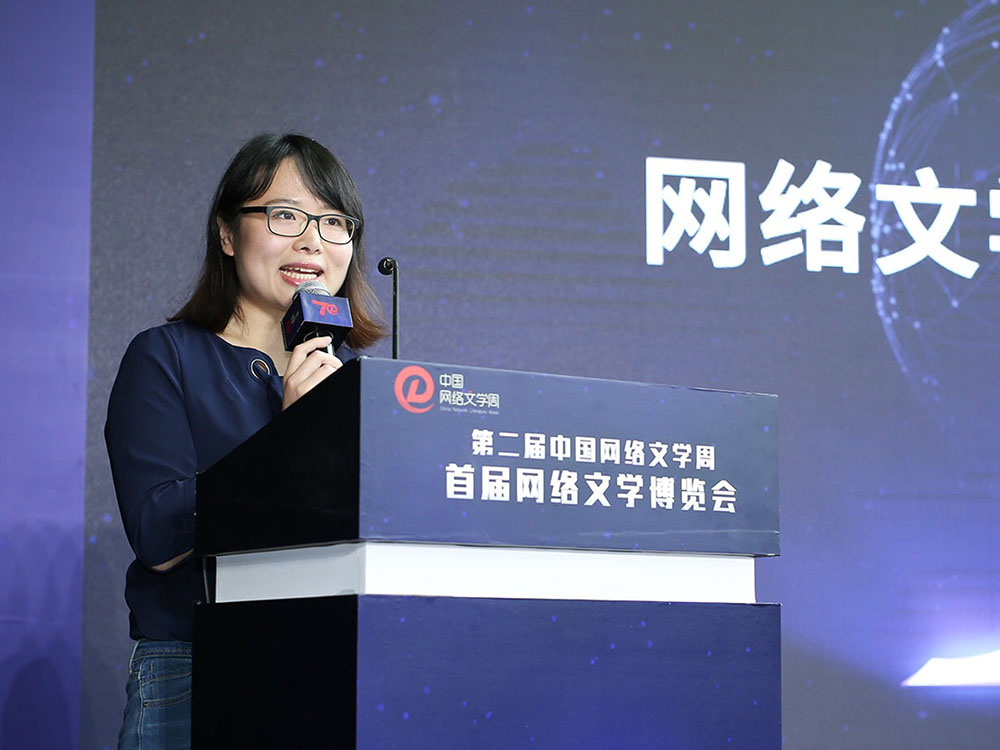
Emily Huang speaks during the 2nd Chinese Internet Literacy Week
